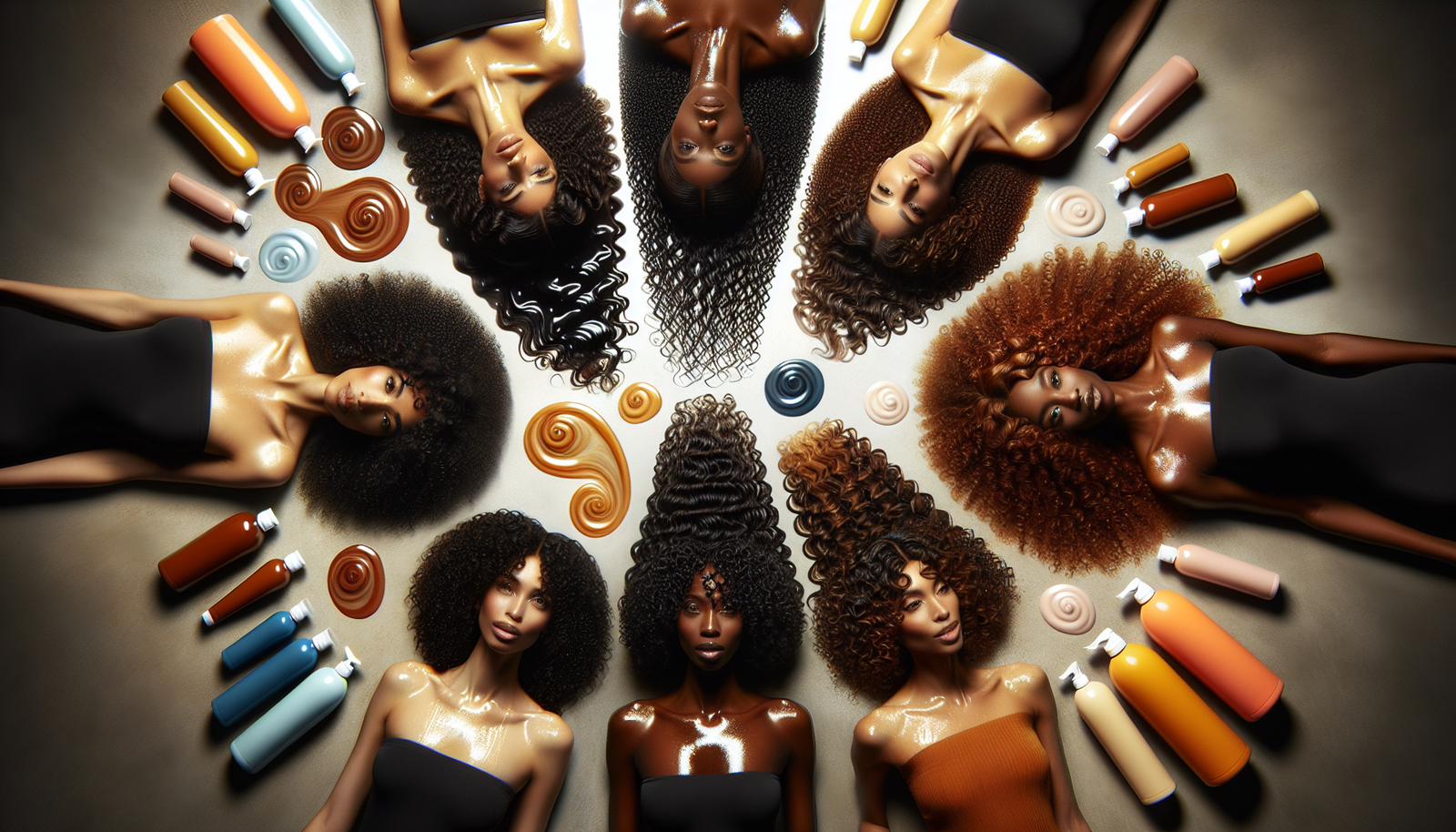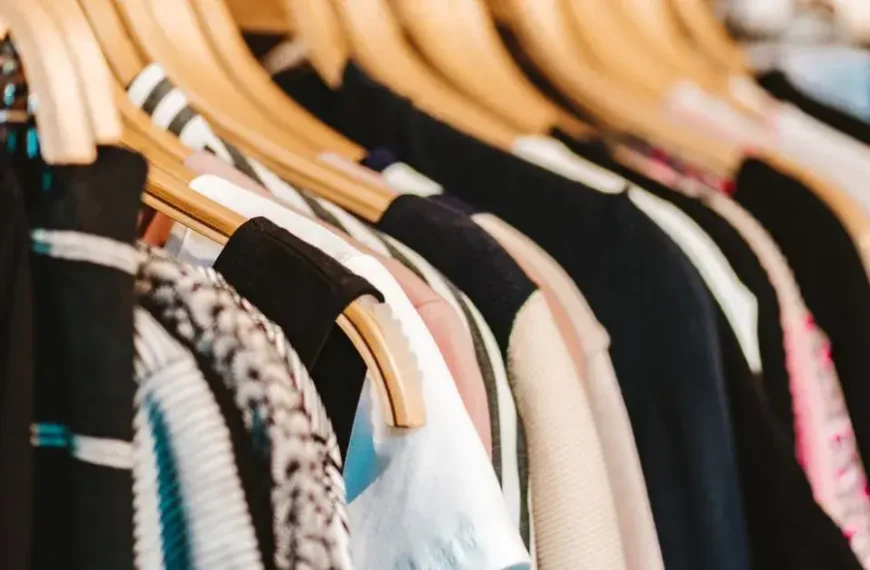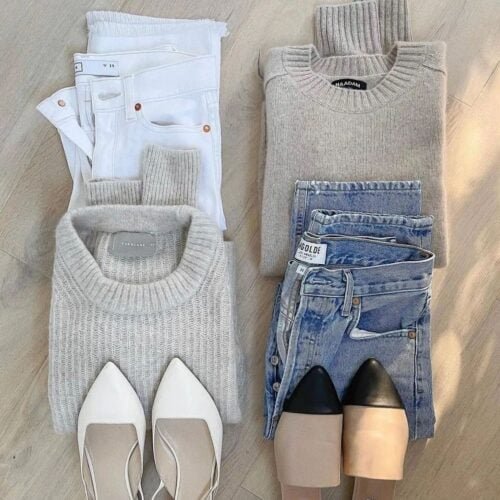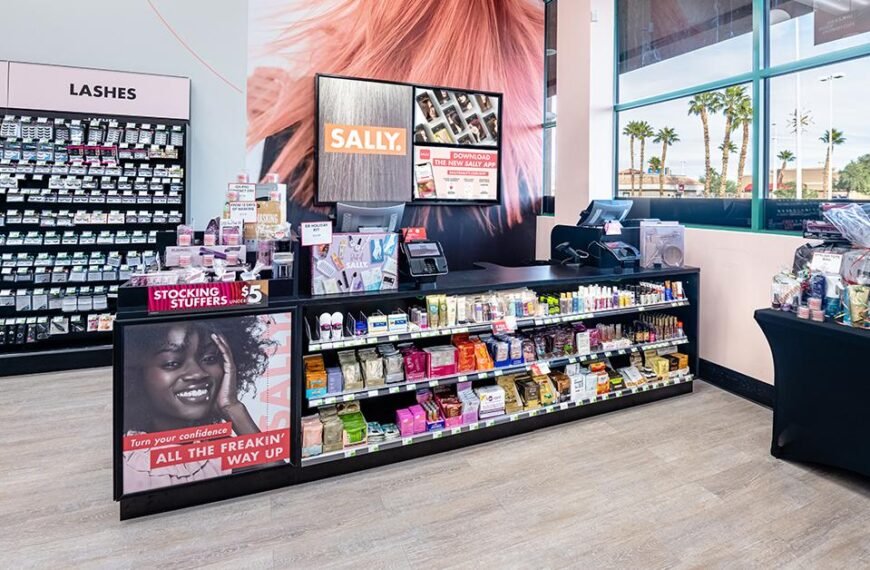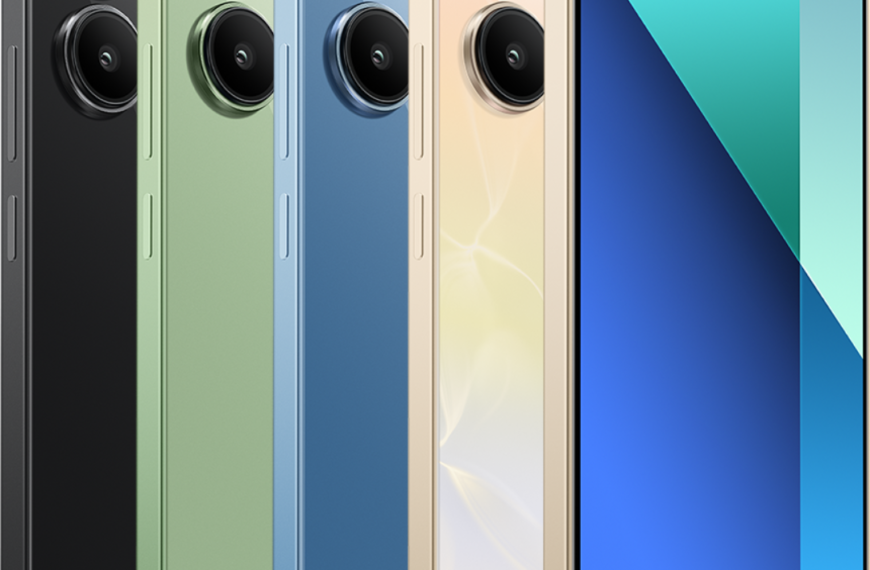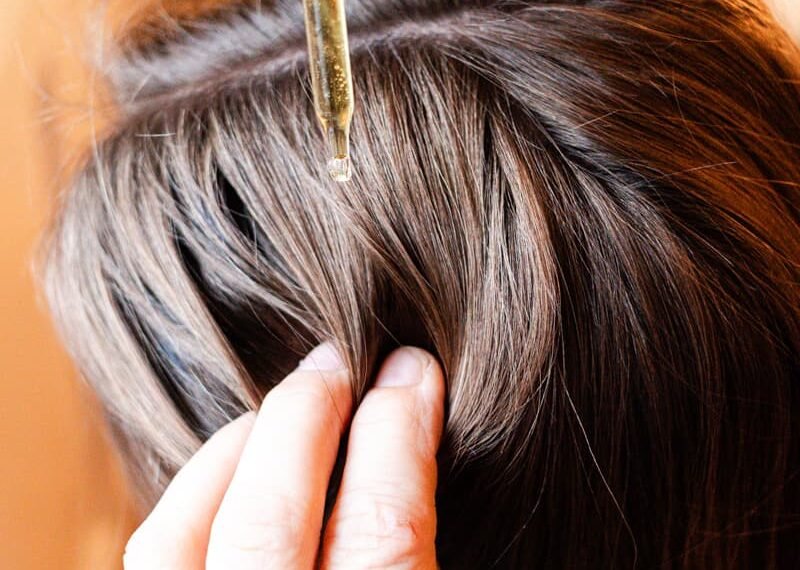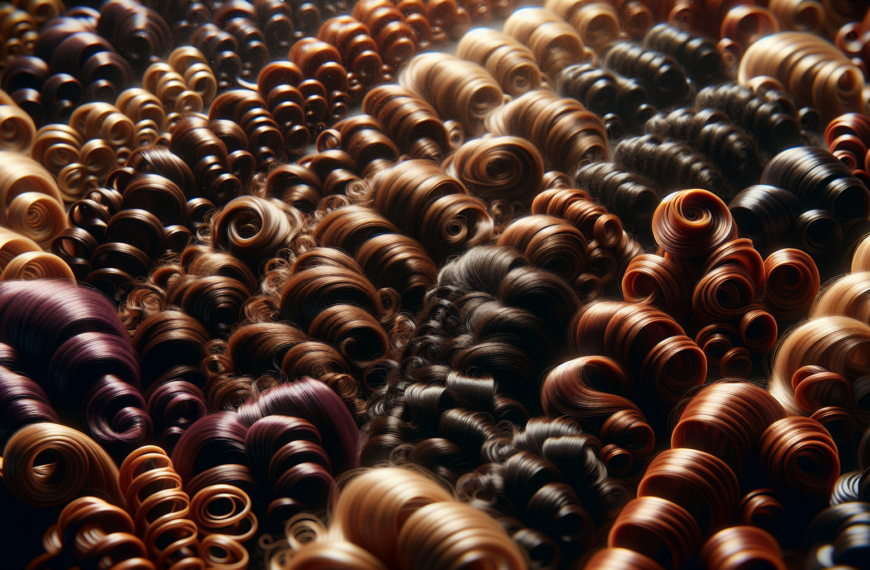Curly hair can be a beautiful asset, but it often requires special care to maintain its luster and health. Finding the best shampoo for curly hair has an impact on how well these locks behave and shine. As we step into 2024, the market offers an array of products designed to nourish and enhance curly tresses, from wavy to tightly coiled strands.
This guide aims to explore the top 10 best shampoos for curly hair available this year. It will dive into the importance of understanding different curl types and the key ingredients to look for, such as hyaluronic acid, coconut oil, and sheaf butter. Readers will also learn how to choose the right sulfate-free shampoo for their specific curl pattern, proper washing techniques, and how often to cleanse curly hair. Additionally, the article will touch on complementary products to create a complete curly hair routine, ensuring those spirals stay bouncy and beautiful.
Understanding Curly Hair Types
Curly hair is a diverse and beautiful texture that ranges from loose waves to tight coils. To properly care for curly hair, it’s essential to understand the different types and characteristics. This knowledge helps in selecting the right products and techniques for maintaining healthy, vibrant curls.
2A to 4C Curl Patterns
The hair typing system, originally created by Andre Walker and later expanded, categorizes curly hair into four main types with three subcategories each. This system helps identify curl patterns based on the shape and tightness of the curls:
Type 2: Wavy Hair
2A: Fine, tousled texture with slight waves
2B: More defined S-shape waves starting from mid-length
2C: Thick texture with well-defined S-bends from the roots
Type 3: Curly Hair
3A: Large, loose curls
3B: Springy, coarse ringlets
3C: Tight corkscrew curls with high density
Type 4: Coyly Hair
4A: Springy S-shaped coils
4B: Densely packed strands with sharp Z-shaped angles
4C: Tight zigzag pattern prone to shrinkage
It’s important to note that most people have multiple curl patterns on their head, with looser patterns typically at the nape and tighter curls at the crown
Porosity and Density
Porosity refers to the hair’s ability to absorb and retain moisture, which has an impact on how well curls behave and shine. There are three levels of porosity:
Low Porosity: Tight cuticle structure, difficult for moisture to penetrate
Medium Porosity: Looser cuticle structure, balanced moisture retention
High Porosity: Very open cuticle structure, easily absorbs and loses moisture
Density, on the other hand, refers to how closely packed the hair strands are on the scalp. Curly hair can range from fine to coarse and may have high or low density, affecting its overall appearance and care needs.
Common Curly Hair Concerns
Curly hair faces unique challenges due to its structure and properties. Some common concerns include:
Dryness and Frizz: Curly hair is prone to dryness as natural oils have difficulty traveling down the hair shaft, leading to frizz and lack of definition.
Breakage and Thinning: When curly hair becomes dry, it loses strength and is more susceptible to breakage, especially when brushing or styling.
Tangling and Knotting: The rough texture of dry curly hair can cause strands to adhere to each other, resulting in tangles and knots.
Lack of Shine: The raised cuticles of curly hair can make it appear less shiny compared to straight hair.
Color Fading: Damaged cuticles in curly hair can lead to faster color fading when the hair is colored.
To address these concerns, it’s crucial to use appropriate products and techniques based on your specific curl type and porosity. For example, those with type 4 hair should limit washing to once a week or less, avoid sulfates, and moisturize daily with leave-in conditioners. Type 3 hair benefits from sulfate-free shampoos and regular deep conditioning, while type 2 hair may require lighter products to avoid weighing down the waves.
Understanding your curl type, porosity, and common concerns helps in developing a tailored hair care routine that enhances your natural curl pattern and maintains healthy, beautiful curls.
Key Ingredients to Look for in Curly Hair Shampoos
When selecting the best shampoo for curly hair, it’s crucial to pay attention to the ingredients list. Curly hair has unique needs, and the right combination of ingredients can make a significant difference in maintaining healthy, well-defined curls. Here are the key components to look for in curly hair shampoos:
Moisturizing Oils
Curly hair is naturally drier and more prone to frizz due to its structure. To combat this, look for shampoos that contain lightweight, nourishing oils. These oils help to add shine and hydration without weighing down the curls. Some beneficial oils to look for include:
Jojoba oil
Argon oil
Rosemary oil
Coconut oil
Avocado oil
Grapeseed oil
For those with thicker, coarser curls, heavier oils like sheaf butter, cocoa butter, and castor oil can be deeply hydrating and help define curl patterns. However, those with fine hair should be cautious, as these heavier oils may weigh down their curls.
Protein-rich Ingredients
Protein has an impact on maintaining the strength and elasticity of curly hair. It helps fill in gaps in the hair cuticle, sealing in moisture and preventing it from escaping. This results in softer, more hydrated curls that are less prone to dryness and frizz. Look for shampoos containing:
Keratin
Collagen
Silk protein
Wheat protein
These proteins work to improve the hair’s elasticity, allowing it to stretch without breaking. This elasticity is essential for maintaining the natural bounce and flexibility of curly hair, preventing it from becoming brittle and prone to breakage.
Gentle Cleansing Agents
Traditional shampoos often contain harsh sulfates that can strip curly hair of its natural oils, leading to dryness and frizz. Instead, opt for shampoos with gentle cleansing agents that effectively remove build-up without over-drying the hair. Some gentle cleansing agents to look for include:
- Decyl polyglucose
- Cocamidopropyl betaine
- Sodium cocoyl isethionate
- Sodium C14-16 olefin sulfonate
These surfactants provide a mild, creamy lather that cleanses the hair without stripping away essential moisture. For example, decyl polyglucose is a nonionic surfactant that offers gentle cleansing without drying out the hair.
When choosing a shampoo for curly hair, it’s equally important to know what ingredients to avoid. Steer clear of products containing:
- Sulfates (such as sodium lauryl sulfate or SLS)
- Parabens
- Certain types of alcohol
- High pH balance ingredients
These ingredients can dry out curls and cause frizz, undoing all the hard work of your curly hair care routine.
Remember, the best shampoo for curly hair will vary depending on your specific curl type, porosity, and individual needs. Experimenting with different products and paying attention to how your hair responds can help you find the perfect shampoo for your curls.
Product 1 – Best Overall: Virtue Curl Shampoo
Virtue Curl Shampoo stands out as the best overall choice for curly hair. It gently and noticeably removes excess oils and buildup while maintaining the natural curl pattern. This shampoo works exceptionally well for tight curls and coils that tend to experience more dryness. Its formula includes nourishing ingredients such as jojoba oil, which helps to moisturize and enhance curl formation and definition.
Product 2 – Best Budget-Friendly: L’Oréal Paris Evercurl HydraCharge Shampoo
For those seeking an affordable yet effective option, L’Oréal Paris Ever curl Hydra Charge Shampoo delivers impressive results. This drugstore brand has proven its worth with the Ever Curl Sulfate Free Shampoo for Curly Hair. While it may be a simple product, it doesn’t skimp on nourishing curly hair. Users have reported an instant improvement in the appearance and feel of their hair, making it a go-to choice for budget-conscious consumers.
Product 3 – Best for Dry Curls: Amika Hydro Rush Shampoo
Ambika’s Hydro Rush Intense Moisture Shampoo is a game-changer for those with dry curls. The secret weapon in this formula is hyaluronic acid, which is not only a skincare hero but also a powerful hydrating agent for hair. After just one use, users have noticed a significant difference in how moisturized their hair felt, even after drying without any additional products.
Product 4 – Best for Frizz Control: Curlsmith Frizz Control Cleanser
Curl smith Frizz Control Cleanser has an impact on smoothing and slickening curly hair, making it an excellent choice for those battling frizz. Users have fallen in love with how this shampoo transforms their hair, leaving it looking smooth, silky, and full of volume, even after it’s completely dried. The result is shiny, healthy-looking curls with significantly reduced frizz.
Product 5 – Best for Damaged Curls: Joico Moisture Recovery Shampoo
For those looking to revive damaged curls, Joyce Moisture Recovery Shampoo is a top contender. This shampoo has the power to bring natural curl texture back to life, effectively eliminating frizz and flyaway. It’s particularly efficient at addressing the unpredictable nature of curly hair, making it an excellent choice for those dealing with damage and unruly curls.
Additional noteworthy shampoos for curly hair include:
- Pattern Hydration Shampoo: This product excels in nourishing curls and maintaining frizz, meeting and exceeding expectations for repairing damaged curly hair.
- Rios Curls Hydrating Shampoo: A two-in-one shampoo and conditioner that provides excellent hydration for curls, making it perfect for those short on time.
- Super zero Shampoo Bar: An innovative and surprisingly effective option for cleansing curly hair without overs tripping or causing scalp irritation.
- Cantu TXTR Apple Cider Vinegar + Tea Tree Soothing Shampoo: This affordable option uses apple cider vinegar to reduce scalp irritation and product buildup, promoting healthy and shiny curls.
- Laplet No.4C Bond Maintenance Clarifying Shampoo: An excellent clarifying option that not only removes buildup but also works to rebuild broken bonds often seen in split, curly ends.
When selecting the best shampoo for curly hair, it’s crucial to consider individual curl types and specific hair needs. As celebrity stylist Larry Sims notes, “The tighter the curl, the drier it becomes”. Therefore, choosing a shampoo that addresses your unique curl pattern and moisture requirements is key to achieving healthy, well-defined curls.
How to Choose the Right Shampoo for Your Curl Type
Choosing the right shampoo for curly hair can be a daunting task, but understanding your hair’s unique characteristics is key to finding the perfect product. To select the best shampoo for curly hair, it’s essential to consider three main factors: your curl pattern, hair porosity, and scalp condition.
Assessing Your Curl Pattern
Curl patterns range from loose waves to tight coils, and each type has specific needs. To determine your curl pattern, examine your hair when it’s wet, as water weighs down the strands and reveals their true shape. Most people have multiple curl patterns on their head, with looser patterns typically at the nape and tighter curls at the crown.
Curl patterns are categorized from 2A (loose waves) to 4C (tight coils). For example:
- 2C hair has a well-defined S-bend starting from the root and is prone to frizzing. It requires moisture-rich, sulfate-free shampoos to maintain hydration.
- 4A hair has springy S-shaped coils that need frequent maintenance. Look for shampoos with moisturizing ingredients to keep coils manageable.
- 4C hair has a tight zigzag pattern prone to shrinkage and requires shampoos with natural oils like argon, sheaf butter, or coconut oil to maintain moisture.
Considering Your Hair Porosity
Hair porosity refers to how well your hair can absorb and retain moisture. It has an impact on how much protein you should incorporate into your routine and whether you need sealing ingredients. There are three levels of porosity:
- Low Porosity: Hair struggles to absorb moisture and is prone to product buildup. Choose lightweight, protein-free shampoos that won’t weigh down the hair.
- Medium Porosity: Hair absorbs and retains moisture well. Most shampoos work well for this type.
- High Porosity: Hair absorbs moisture quickly but struggles to retain it. Look for shampoos with protein and sealing ingredients to help lock in moisture.
It’s important to note that porosity can vary throughout each strand, with virgin hair typically being medium porosity near the scalp and increasing in porosity towards the ends, especially if damaged.
Evaluating Your Scalp Condition
Your scalp’s health plays a crucial role in overall hair health and should be considered when choosing a shampoo. Different scalp conditions require specific ingredients:
- Dry Scalp: Look for shampoos with moisturizing ingredients like glycerin or aloe Vera.
- Oily Scalp: Choose clarifying shampoos that can remove excess oil without stripping the hair.
- Sensitive Scalp: opt for gentle, fragrance-free shampoos with soothing ingredients like chamomile or oat extract.
When selecting a shampoo, consider products specifically formulated for curly hair. These often contain ingredients that enhance curl definition and minimize frizz. Some highly recommended options include:
- Sheaf Moisture Jamaican Black Castor Oil Strengthen, Grow & Restore Shampoo: Ideal for curly and coyly hair types.
- Deva Curl No-Poo Decadence Zero Lather Ultra Moisturizing Milk Cleanser: A great cleansing conditioner for curly hair.
- Kinky-Curly Come Clean: An effective clarifying shampoo for coyly hair.
Remember, the best shampoo for your curly hair may require some trial and error. Pay attention to how your hair responds to different products and be willing to adjust your routine as needed. With the right shampoo, you can enhance your natural curl pattern and maintain healthy, beautiful curls.
Proper Shampooing Techniques for Curly Hair
Pre-poo Treatments
Before stepping into the shower, it’s essential to begin the detangling process. This pre-shampoo routine, also known as “pre-poo,” helps protect curly hair from potential damage during washing. To start, gently run fingers through the curls to remove any knots, followed by using a wide-tooth comb for detangling brush.
Pre-poo treatments offer an opportunity to supply strands with additional moisture, which helps strengthen the hair. A popular method involves applying a hair oil, such as the Curl Moisturizing Shine Oil, to dry hair and leaving it on for five minutes before showering. For those with high porosity curly or kinky hair, coconut oil, olive oil, or honey can be effective pre-poo options.
Several products are specifically designed for pre-poo treatments:
- INSPIRE by made beautiful Pre-Poo Detangler
- Mielle Organics Mongongo Oil Pre-Shampoo Treatment
- DevaCurl Wash Day Wonder Pre-Cleanse Slip Detangler
- African Pride Moisture Miracle Aloe & Coconut Water Pre-Shampoo
These products help detangle, minimize breakage, and add moisture before shampooing.
Sectioning Hair
For those with type four curls, which are densely packed and prone to tangling, sectioning the hair is crucial. Divide the hair into 4-6 sections, twisting each section and clipping it up to prevent shrinkage. This technique ensures that each section receives adequate cleansing, moisturizing, and detangling attention.
When applying pre-poo treatments or oils, part the hair down the middle and work with small sections. Using a downward smoothing motion, press the oil into each section from root to tip. This method allows for even distribution and effective detangling.
Focusing on the Scalp
When it comes to shampooing curly hair, the focus should be on the scalp rather than the lengths of the hair. Begin by wetting the hair with warm water to allow the shampoo to penetrate the strands effectively. Then, apply a small amount of sulfate-free, curly girl-friendly shampoo directly to the scalp.
Gently massage the shampoo into the scalp, being careful not to bunch up the hair, which can cause more tangles. Let the excess shampoo distribute down the length of the hair shaft naturally. For a deeper clean, consider using a shampoo brush to gently lift any product buildup on the scalp.
It’s important to note that the frequency of shampooing may vary depending on curl type and hair thickness. Those with fine hair or looser curl patterns may need to shampoo more regularly, as these hair types are prone to buildup. On the other hand, individuals with thicker curls might benefit from co-washing (using a conditioner to cleanse) more frequently and shampooing less often.
When selecting a shampoo, opt for a “low-poo” or sulfate-free formula. Sulfates, while effective cleansing agents, can be too harsh for curly hair. This is because curly hair is typically drier, as it takes longer for natural oils from the scalp to travel down the spirals. The tighter the curls, the drier the hair tends to be.
By following these proper shampooing techniques, curly-haired individuals can maintain their moisture levels, minimize breakage, and keep their curls looking their best. Remember, the key is to be gentle, focus on the scalp, and use products specifically formulated for curly hair to enhance and protect your natural curl pattern.
Frequency of Washing Curly Hair
Factors affecting wash frequency
The frequency of washing curly hair varies from person to person, as everyone’s curls are unique. Several factors influence how often one should wash their curly hair:
- Curl type: Looser curls and waves may require more frequent washing, while tighter coils can go longer between washes.
- Hair texture and thickness: Fine or wavy curls may need more frequent washing compared to thick or coarse curls and coils.
- Scalp condition: Oily scalps may require more frequent washing, while dry scalps benefit from less frequent cleansing.
- Lifestyle factors: Exercise routines, profession, and environmental exposure can affect how often curly hair needs washing.
Most experts recommend washing curly hair about 1-3 times a week. However, those with thicker curls and coils can often extend their wash days to every 10-14 days. This is because coarser curls need the moisture from natural sebum for as long as possible to prevent dryness and brittleness.
Signs it’s time to wash
While it’s essential to avoid over-washing curly hair, there are certain signs that indicate it’s time for a wash:
- Scalp itchiness or flakiness
- Visible product buildup
- Limp or lifeless curls
- Excessive oiliness at the roots
- Unpleasant odor
If curls feel dry, it may be a sign to wash less frequently. Washing curly hair daily can strip away natural oils, making it difficult to retain moisture.
Co-washing vs. shampooing
Co-washing, or conditioner-only washing, has gained popularity in the curly hair community as an alternative to traditional shampooing. Here’s a comparison of the two methods:
Co-washing:
- Uses a cream cleanser without harsh chemicals like sulfates and parabens
- Helps maintain moisture and reduce frizz
- Suitable for mid-week washes or frequent washing due to exercise or profession
- Works well for those with dry or coarse curls
Shampooing:
- Provides a deeper cleanse, removing product buildup and excess oils
- Comes in various formulations for different needs (low-poo, sulfate-free, clarifying)
- Essential for maintaining scalp health and preventing buildup
Many curly-haired individuals incorporate both methods into their routine. A common approach is to use a co-wash or low-poo mid-week for quick restyling and a sulfate-free shampoo 1-2 times per week for a thorough cleanse.
For those new to co-washing, here’s a simple technique:
- Work the co-wash or conditioner into the roots, massaging the scalp to remove buildup and dirt.
- Rinse completely and follow with a second round of conditioner, focusing on the mid-shaft to ends.
- Keep hair soaking wet during the process to lock in moisture.
- Rinse out completely or leave some in for extra hydration.
It’s important to note that while co-washing can be beneficial, it shouldn’t completely replace shampooing. Incorporating a sulfate-free shampoo every few washes helps prevent buildup and maintain scalp health.
For those experiencing product or sebum buildup on the hair or scalp, or dealing with a flaky scalp, using a clarifying shampoo every 4-5 washes can be beneficial. This helps reset the hair and scalp, ensuring a clean foundation for healthy curls.
Complementary Products for a Complete Curly Hair Routine
Leave-in Conditioners
Leave-in conditioners are essential for curly hair, serving as a bridge between haircare and styling. These products nourish and prep the hair before applying styling products, helping to cut down on frizz and keep hair looking and feeling healthy. They provide ample moisture that curly hair craves, protecting it from damage and restoring shine.
When choosing a leave-in conditioner, consider your hair’s porosity and texture. For those with high porosity hair, which absorbs moisture well but doesn’t retain it easily, a heavier leave-in conditioner with ingredients like sheaf butter and heavy oils may be beneficial. On the other hand, low porosity hair, which has cuticles that are close together, does best with lightweight formulas containing little to no oils or butters.
For fine-haired individuals, lightweight leave-in conditioners can provide the necessary moisture without weighing down the hair. Products like Cantu’s formula offer hydration without making hair look thinner. Those with coyly, type 4 hair may benefit from leave-in conditioners specifically designed for their hair type, such as those enriched with aloe, honey, and jojoba oil.
Styling Creams and Gels
Styling products are crucial for locking curls in place, defining them, and protecting against frizz. They create a film around the hair shaft that helps maintain the curl pattern and ensures the hairstyle lasts longer. There are various types of styling products, each providing a different level of hold and final look for curls.
Styling creams are great for providing a soft, crunch-free hold, enhancing curls or waves for a natural-looking style. They’re ideal for those seeking definition without stiffness. Styling gels, on the other hand, are perfect for long-lasting frizz control and maximum definition. They often create a “cast” on the hair, which can be scrunched out once dry for soft, bouncy curls.
When selecting styling products, consider the desired hold level and your hair’s specific needs. Products from moisture-focused lines provide extra hydration for dry hair, while protein-enriched formulas help strengthen higher porosity hair types. For those with sensitive scalps, fragrance-free and dermatologically tested options are available.
Deep Conditioning Treatments
Deep conditioning treatments are game-changers for curly hair, offering intense hydration and numerous benefits. These treatments can help restore, repair, and strengthen hair by providing nourishment after heat styling, color processes, chemical treatments, or environmental damage.
Deep conditioning masks are highly concentrated and provide richer, more powerful hydration compared to regular conditioners. They penetrate more deeply into the hair shaft for a more effective treatment . This is particularly beneficial for curly hair, which is often prone to frizz and dryness at the ends due to its structure .
For optimal results, incorporate deep conditioning treatments into your routine regularly, typically once a week or every other week, depending on your hair’s needs. Apply the treatment to damp hair from root to tip, ensuring curls are fully saturated. Use a wide-tooth comb or gentle detangling brush to distribute the product evenly.
When choosing a deep conditioning mask, look for ingredients like nourishing butters and hydrating natural oils such as grapeseed, avocado, and black castor oil. These ingredients help provide the intense moisture that curly hair craves, enhancing the curl pattern and providing definition.
By incorporating these complementary products into a curly hair routine, individuals can achieve moisturized, defined, and healthy curls. Remember to adjust product usage based on your specific curl type, porosity, and hair needs for the best results. Top 10 Best Shampoos for Curly Hair in 2024
Conclusion
To wrap up, finding the right shampoo for curly hair has a significant influence on maintaining healthy, defined curls. The key lies in understanding your unique curl pattern, hair porosity, and scalp needs to select products that provide the right balance of cleansing and moisture. By incorporating proper washing techniques and complementary products like leave-in conditioners and deep treatments, you can enhance your natural curl pattern and keep frizz at bay.
Remember, the journey to perfect curls is personal and may require some trial and error. To consider the best shampoo for curly hair, look for sulfate-free formulas with nourishing ingredients that cater to your specific curl type. With the right products and care routine, you can embrace your curls and let them shine in all their natural glory. So go ahead, experiment with different shampoos and techniques to find what works best for your unique curls.
FAQs
What are the leading shampoos for curly hair in 2024?
Our top recommendations for curly hair shampoos include:
- Best Overall: Curlsmith Essential Moisture Shampoo (12 oz.)
- Best Value: Cantu TXTR Apple Cider Vinegar + Tea Tree Soothing Shampoo (16 oz.)
- Best Clarifying: Olaplex No.4C Bond Maintenance Clarifying Shampoo (8.5 oz.)
Which shampoo is most effective for curly hair?
The top shampoos for curly hair, based on thorough testing and reviews, are:
- Best Budget Shampoo: L’Oréal Paris Evercurl HydraCharge Shampoo
- Best for Dry Curly Hair: Amika Hydro Rush Shampoo
- Best for Thick Curly Hair: Bumble & bumble Curl Moisturizing Shampoo
- Best for Curly and Frizzy Hair: Joico Moisture Recovery Shampoo
- Best for Coarse Curly Hair: (Specific product not listed in original answer)
Which hair care brand is the best for managing curly hair?
The top brands for curly hair care include:
- Best Overall: Briogeo Curl Charisma
- Best Budget: SheaMoisture Curl & Style Milk
- Best Shampoo: Kérastase Curl Manifesto Shampoo
- Best Gel: AG Care Curl Re:Coil Curl Activator
- Additional notable products include various gels, creams, and tools for fine hair and diffusing.
What are the optimal products for natural curly hair?
The best curly hair products to establish a comprehensive, frizz-free routine are:
- Best Overall: PATTERN Beauty Leave-In Conditioner
- Best Budget: L’Oréal Paris Evercurl HydraCharge Shampoo
- Best Hair Ties: (Specific product not listed in original answer)
- Best Styling Gel: (Specific product not listed in original answer, marked as SALE)
- Best Shampoo: Vernon François Curl Shampoo
- Best Conditioner: Olaplex No. (Specific product not listed in original answer)
- Best Hair Mask: (Specific product not listed in original answer, marked as SALE)
- Best for Scalp Care: (Specific product not listed in original answer)

